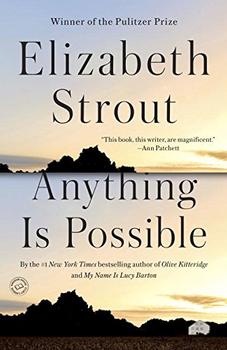Summary | Excerpt | Reading Guide | Reviews | Beyond the book | Read-Alikes | Genres & Themes | Author Bio

You Should Pity Us Instead sparks curiosity right away because of its title. Who are we to pity? The main characters of these short stories? What is it about them that makes first-time author Amy Gustine tell us to feel pity rather than trust our immediate emotions? There are visceral moments in many of these stories that shock us with shaky ethics and extreme potential solutions; that expose us to living in ways that just seem like too much to bear.
In "Unattended," it's frazzled Joanne, thinking for a split-second about how quiet it would be if her baby son drowned in the inflatable pool she's used as one of many methods to try to calm him. "Goldene Medene" has the ethically questionable Dr. Spencer at Ellis Island – with the power to declare if immigrants have trachoma, or are deranged, with simple swipes of blue chalk on their shoulders – thinking of using his power to get closer to an immigrant woman who looks so much like the one who rejected marriage to him. And "An Uncontaminated Soul" sees the broken-hearted widow Lavinia living with fifty or sixty cats in the house she inherited from her mother.
These are but a few examples of characters Gustine has created – people who are confusing to feel for; which might just be what she is after. It's horrifying to think that Joanne could be one step away from Andrea Yates, who drowned her five children in a bathtub in Houston, Texas in 2001, but, then again, could her thinking just be the product of an exhausted mind? What Dr. Spencer is doing seems wrong, but understanding that he is after the chance to just have closure, albeit from a totally unrelated person, makes his actions more complex. It's sorrowful, and he's worthy of our pity in that way, even while we worry about what he's doing. And there are no clues given as to what exactly made Lavinia take in so many cats. But we get some sense that perhaps she has them not only because of how her husband died, but because her son is long gone, too. Loneliness is an immense, dark tunnel, and people cope with it in different ways. All of this is for us to debate, and Gustine moves deftly between the present and the past in defining her characters to add more depth to our consideration of them.
Yet Gustine also presents an interesting contrast. One story in this collection, "Coyote," offers absolutely nothing from Cory's (the main character's) past to give possible insight into why she is such a helicopter parent to little Alec. It's strictly a present-day story, and so Cory is even more confusing to us, because we don't know what has led up to her being this way. In this story, it feels like Gustine wants the reader to be more involved, not just reading the story and thinking about its characters, but actually creating their histories and reasons for doing things - she seems to want us to climb into the story, and really see these characters through their eyes.
There are other stories, though, particularly in the latter half of the book, such as "The River Warta," that read like workshops for writers, teaching them the mechanics of short stories without the distraction of feeling anything for the characters: You introduce the character this way, hit this beat, give the reader something to chew on right here, and soon you have a workable short story. In "The River Warta," Caroline seems to only come and go, and another main character, Obi, does the same in "When We're Innocent." Who are they? Were they really here? We end up with a blank stare and a little disbelief instead of a fizzy feeling of engagement with the characters.
Ultimately, as a short story writer, Gustine is on the right path. Some of her stories work beautifully, with her characters more lively because of her insistence that we think beyond our immediate feelings. Some don't work all too well. But it's clear that she has a vast emotional landscape to explore here, and that her fertile imagination makes the mundane in daily life crackle.
![]() This review
first ran in the February 17, 2016
issue of BookBrowse Recommends.
This review
first ran in the February 17, 2016
issue of BookBrowse Recommends.

If you liked You Should Pity Us Instead, try these:

by Elizabeth Strout
Published 2018
An unforgettable cast of small-town characters copes with love and loss in this new work of fiction by #1 bestselling author and Pulitzer Prize winner Elizabeth Strout.

by Lorrie Moore
Published 2014
These eight masterly stories reveal Lorrie Moore at her most mature and in a perfect configuration of craft, mind, and bewitched spirit.
Your guide toexceptional books
BookBrowse seeks out and recommends the best in contemporary fiction and nonfiction—books that not only engage and entertain but also deepen our understanding of ourselves and the world around us.